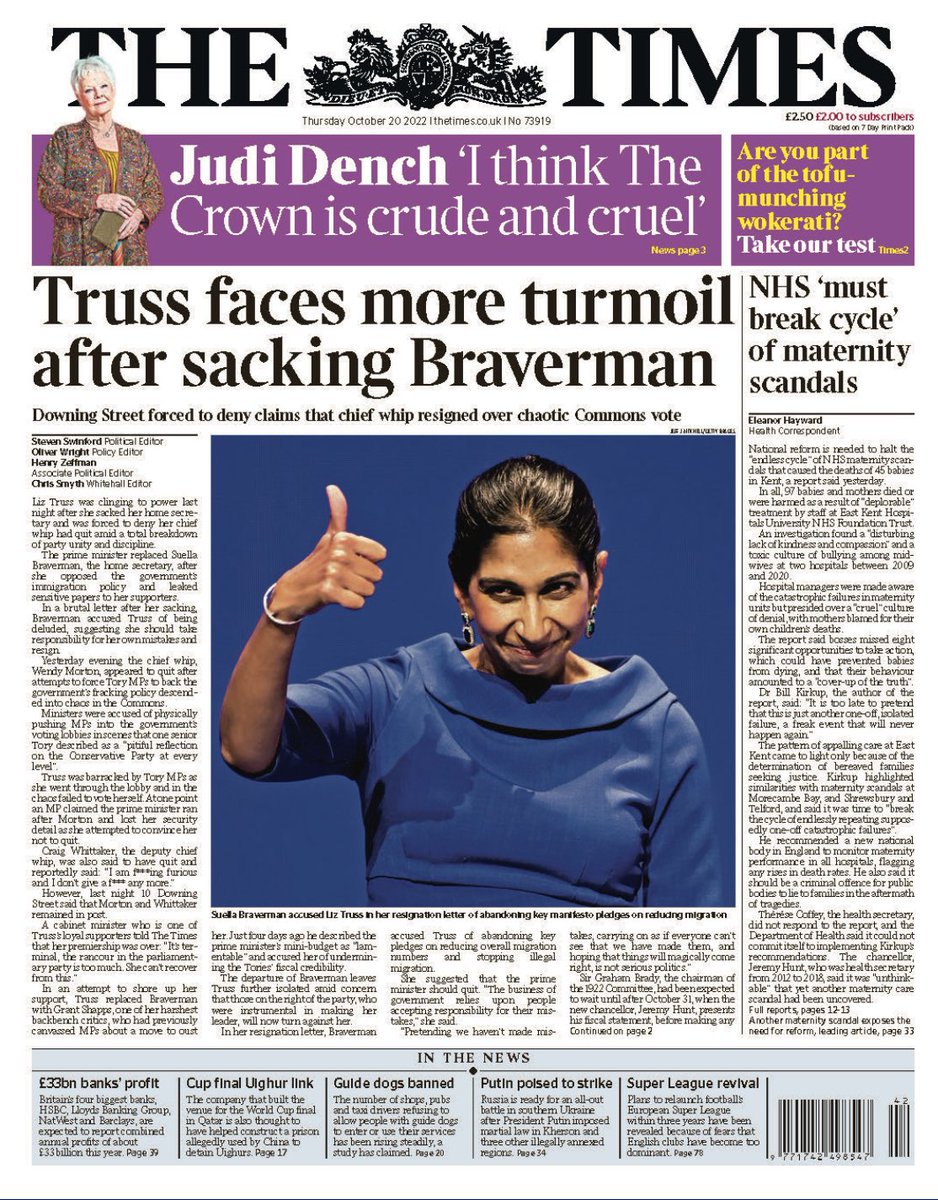Emrys
Emrys's JournalWhere should libraries go if Twitter becomes a wasteland?
tl;dr - in a way it doesn’t matter what we want to do, we have to follow the lead of our communites. If they stay put then so should we; if they fragment then it becomes a lot more complicated.
...
SHOULD WE SIMPLY LEAVE TWITTER ON PRINCIPLE?
Ultimately, my view is that libraries leaving Twitter on principle is self-defeating and too selective. Facebook is so incredibly problematic and has been for at least a decade, so if we’re leaving Twitter we should probably be leaving FB, right? And they own Instagram so we should leave that too. Which means we’re left with TikTok, which is hardly a bed of ethical roses and is especially problematic around data.
So do we leave all of them on principle? You could certainly make a case for it - but I don’t think most of us will because it would destroy our ability to interact with our communities. So if the answer is ‘no we’re not leaving all of them,’ then leaving just Twitter seems like a misstep: if you’ll forgive the extended metaphor, it’s like cutting off your unethical nose to spite your face, when the cheeks, eyes, chin and mouth are equally guilty.
https://www.ned-potter.com/blog/where-should-libraries-go-if-twitter-becomes-a-wasteland
Magnetic north, true north and grid north align over GB for first time
The difference between magnetic north and grid north is often referred to as ‘grid magnetic angle’ and it not only varies from place to place, but changes with time. This needs to be taken into account when navigating with a map and compass.
In 2014, for the first time in Great Britain since the 1660s, magnetic north moved from being to the west of grid north to the east. The change started in the very south-west corner of Britain and will slowly progress across the whole country over the next 12 to 13 years. We wrote a blog on the progress of alignment between magnetic and grid north in Britain back in 2019, which you can read here.
Now, there is a third line about to come into alignment – true north. This is the direction of lines of longitude that all converge at the north pole.
On a map projection like the transverse Mercator projection used for the British National Grid, the longitude lines curve away from the straight grid lines. This is called ‘convergence’. The amount of curvature varies across the grid area, except at one line. A transverse Mercator projection has a “central meridian” line where a chosen longitude aligns with a vertical eastings grid line. For the National Grid this central meridian line is 2°W or 400000m E.
The changing direction of magnetic north is now approaching this ’magic line‘ so all three will briefly be in alignment. Due to the magnetic north direction being skewed relative to the central meridian and the fact that it is moving, the triple alignment point will move up the central meridian.

The 'magic line' as it passes through Great Britain
https://www.ordnancesurvey.co.uk/newsroom/blog/magnetic-true-grid-north-align-over-great-britain?fbclid=IwAR35Zekr-NXZQTg1-E_VUkZ1adtTErUn_CtVllJfS8IG6PnhKNGR2fvNN_o
I edit books. The Oxford comma is much misunderstood.
Nowadays, rather than having strict house styles, most book publishers are flexible about matters of style, like the Oxford comma, because they want to minimize costs resulting from changing what an author's submitted for publication. Generally, if what an author's done is consistent, or thereabouts, we'll standardize it throughout a chapter or whole book.
The Oxford comma means something different in book publishing than it does in everyday chatter.
It means the comma after the penultimate item in a list is obligatory in all cases.
It's nothing to do with making sense of a sentence by fiddling with the punctuation, that comma's just always there. The Oxford University Press explains why it adopted this practice:
https://en-academic.com/dic.nsf/enwiki/256035
Translated from the somewhat flowery English: to save time spent by copy-editors deciding in every case whether there should be a comma after the penultimate item in a serial list, it's easier to just always use it, so that's what OUP imposes. And that's what a publisher means when they instruct us to standardize on using the Oxford comma or not.
This cuts out nuance, as in the examples people often give when arguing in the Oxford comma's favour, because that comma is not optional. But it saves time, and time is money.
So there you go: all those arguing for the Oxford comma have been doing it wrong all along. According to the Oxford University Press, anyway.
No, Elon and Jack are not "competitors." They're collaborating.
As someone who has followed the company closely since its inception and has had a chance to talk in depth about technical topics with Jack Dorsey and the company’s other founders over the years, I have a different view.
Here’s a series of common questions regarding the deal and the relationship between Dorsey and Musk about which I see the most errors and misconceptions.
https://davetroy.medium.com/no-elon-and-jack-are-not-competitors-theyre-collaborating-3e88cde5267d
The article, from a Twitter near-insider who specializes in combating disinformation in tech, is interesting food for thought about what Musk apparently thinks he's trying to do - and the author thinks will end disastrously - and how Jack Dorsey is not Musk's rival.
It might be ineresting to compare Twitter sources, but it looks like you have it well covered.
For anyone else who might be interested, here are a few of mine I check out regularly.
Here's Josh Marshall's Ukraine Twitter list (I don't check out this one that often, but it includes some I do, like Anders Åslund, Ukraine Weapons Tracker, Julia Davis (who we've discussed), The Kyiv Independent, Illia Ponomarenko etc.): https://twitter.com/i/lists/1494877848087187461
Individual accounts (mainly aggregators unless they're individuals' names):
The Dead District (based in Georgia) - https://twitter.com/TheDeadDistrict
Glasnost Gone - https://twitter.com/GlasnostGone
NEXTA - https://twitter.com/nexta_tv
Oryx - https://twitter.com/oryxspioenkop
News of Ukraine - https://twitter.com/uasupport999
Russia Vs World - https://twitter.com/RussiaVsWorld_
ТРУХА English - https://twitter.com/TpyxaNews
Euromaidan Press (can get a bit over-excited, depending who's staffing it) - https://twitter.com/EuromaidanPress
BlueSauron - https://twitter.com/Blue_Sauron
Trent Telenko - https://twitter.com/TrentTelenko
Phillips P. OBrien - https://twitter.com/PhillipsPOBrien
Visegrád 24 - https://twitter.com/visegrad24
Thomas C. Theiner - https://twitter.com/noclador
WarMonitor - https://twitter.com/WarMonitor3
Rob Lee - https://twitter.com/RALee85
Jason Jay Smart - https://twitter.com/officejjsmart
Jay in Kyiv - https://twitter.com/JayinKyiv
ZMiST - https://twitter.com/ZMiST_Ua
I could draw the individual ones together in a Twitter list, but I think it would be duplicative (and overwhelming!). I check out different ones on different days, depending on mood and the type of info I'm after.
Twitter's good for some things - even after Musk took over
https://twitter.com/JessicaLBurbank/status/1586013006923603969@JessicaLBurbank
Well @elonmusk now owns this place so here’s a warm welcome to him and his fans
[Twitter video]
I'm not up for fact-checking this video, but it was worth clicking through to see the Musk fan meldowns in the replies.
How the U.K. Became One of the Poorest Countries in Western Europe
The past few months have been rough for the United Kingdom. Energy prices are soaring. National inflation has breached double digits. The longest-serving British monarch has died. The shortest-serving prime minister has quit.
You probably knew all of that already. British news is covered amply (some might say too amply) in American media. Behind the lurid headlines, however, is a deeper story of decades-long economic dysfunction that holds lessons for the future.
In the American imagination, the U.K. is not only our political parent but also our cultural co-partner, a wealthy nation that gave us modern capitalism and the Industrial Revolution. But strictly by the numbers, Britain is pretty poor for a rich place. U.K. living standards and wages have fallen significantly behind those of Western Europe. By some measures, in fact, real wages in the U.K. are lower than they were 15 years ago, and will likely be even lower next year.
This calamity was decades in the making. After World War II, Britain’s economy grew slower than those of much of continental Europe. By the 1970s, the Brits were having a national debate about why they were falling behind and how the former empire had become a relatively insular and sleepy economy. Under Prime Minister Margaret Thatcher in the 1980s, markets were deregulated, unions were smashed, and the financial sector emerged as a jewel of the British economy. Thatcher’s injection of neoliberalism had many complicated knock-on effects, but from the 1990s into the 2000s, the British economy roared ahead, with London’s financial boom leading the way. Britain, which got rich as the world’s factory in the 19th century, had become the world’s banker by the 21st.
https://www.theatlantic.com/newsletters/archive/2022/10/uk-economy-disaster-degrowth-brexit/671847/
Just one of many reasons Braverman has to go
At today's Prime Minister's Questions, Keir Starmer tried to hold Rishi Sunak to account for a number of issues. Sunak appeared to have shed the faux-humility he feigned in his stilted acceptance speech the other day and decided to channel Boris Johnson's rambustious style of baying obfuscation in response to any question he didn't feel like answering properly.
One such question concerned his reappointed/reprieved Home Secretary, Suella Braverman, and the shady circumstances surrounding her dismissal/resignation from Liz Truss's shortlived cabinet in the dim and distant past of last week. Braverman admitted having breached the ministerial code by using her private email account for government business and apologized for her "error" (note singular). But there's a bit more to it than that.
A detail in a Times article by Tim Shipman and Carol Wheeler shed more light on what was going on:
Braverman was later to argue that the document was simply a written ministerial statement, that she had had a blazing row with Truss about immigration numbers (implying that was the real reason for her dismissal) and that she had sent it by mistake at 4am. It was, in fact, sent three or four hours later that morning.
A No 10 source was withering: “She doesn’t make any decision without consulting John Hayes,” who had been acting as an unofficial adviser, frequently seen in the Home Office, meetings which had come to the attention of Matthew Rycroft, the permanent secretary. “Concerns had been raised prior to Wednesday that Braverman might have been sharing restricted government documents with people she shouldn’t have,” a source said. Braverman agreed to resign.
https://www.liverpoolway.co.uk/index.php?/forums/topic/99909-boris-johnson/&page=332
The Ministerial Code nowadays seems to be honoured more in the breach than the observance, and few expect a state apparatus under the control of a party of government that did its damnedest to protect Boris Johnson and his allies from any consequences for such transgressions to impose any serious sanction on Braverman.
It's not a stretch to infer that Braverman has made a habit of sharing government documents with John Hayes (and goodness knows who else) - and for some reason, his wife - for quite some time.
If anyone wants to slip down the rabbit hole and check out who Hayes is and what he stands for, here's his Wikipedia article: https://en.wikipedia.org/wiki/John_Hayes_(British_politician). Holder of what has been the safest Tory seat in the UK, he has some predictably charming views on issues ranging from capital punishment to equal marriage to abortion and, of course, Brexit. He's also a "strategic adviser to BB Energy, a Dubai-headquartered energy trading group".
As for immigration, the Guardian's been doing its own digging to flesh out Hayes's side of the story:
Veteran Tory MP was intended recipient of home secretary’s plans sent from her personal email
...
Hayes told the Guardian last week that [Braverman] planned to campaign alongside him on immigration from the backbenches.
“Suella in seeking my advice, sent a draft policy document to me, which she inadvertently ended up sending to a third party in parliament. That is a technical breach of the code,” he said.
“She reported herself and accepted responsibility. She’s disappointed to leave office but resolved to continue to campaign with me and others to fulfil the party’s manifesto commitments to cut legal immigration and end illegal migration.”
https://www.theguardian.com/politics/2022/oct/26/sir-john-hayes-in-lockstep-with-suella-braverman-on-immigration
Who the "others" are and whether any of them have also been recipients of illicit emails from Braverman, directly or via Hayes, is a question that deserves an answer, but on current form, that's not going to happen on the floor of the Commons.
This may end up being a relatively trivial matter with no serious repercussions for those involved. Maybe it'll be a shot across Braverman's bow that stops such future "unofficial consultations" with Hayes and whoever else. But I have a feeling something else may happen soon that may see her implode, as she seems rather accident-prone.
Meanwhile, I'd rather see Braverman held to account for her hideous views on immigration and asylum seekers, among many other aspects of her portfolio, but it looks like Labour isn't well placed to tackle her on those issues since Starmer declared last week that there's little between Labour and the Tories on immigration.
Too late. Nuclear plants take too long to build. We need solutions sooner.
In the UK, the new nuclear plant at Hinkley Point C has been disastrous in the numerous delays it's suffered and its cost overruns for a variety of reasons. If the same finances had been devoted to developing renewable resources we're already using and tapping newer ones, it would have been better for the environment and the economy. We've never built a nuclear plant that's come in on schedule and on budget.
The usual complaint about renewable resources is that they're intermittent. How this can be addressed depends on geographical location. Already some wind and solar installations are twinned with battery complexes. We also have hydro schemes which can be used as accumulators to balance loads and demands and are long-tried and tested technology. Battery technology is not without its own problems, but innovations arise every year, and with more concerted investment their environmental and financial costs could no doubt be reduced. There are also innovations like using columns of superheated sand to serve as storage. Such technology is much less pie in the sky than the trumpeted new nuclear technologies, some of which are always just beyond the horizon. There are also extensive interconnectors between European countries that can share the load and help to balance demand with supply.
There are also natural resources which aren't intermittent. It's been a source of great frustration for we who live in the UK that the government has been so reluctant and slow to invest in tidal power - which is predictable, and has sufficient overlapping cycles around our coast that it could provide baseload. This again is technology that's now being belatedly applied here. There's also geothermal energy, which has been deployed in some cities around the world, but for some reason our government would rather drill and frack for oil and gas rather than tap into energy which is pretty much unlimited, low-cost and low-risk.
All of the technologies I've mentioned could be developed and deployed more quickly than nuclear installations. And it's amusing to see the myth propagated here that nuclear power is somehow carbon-neutral. No source of electricity and power - including renewables - is, and in the case of nuclear, the costs will extend way beyond the lifetimes of any of us alive now. Nuclear power plants also require backup from other sources in case they have to suddenly go offstream for any reason, and in the UK at least, that's meant various types of gas power plant that can be brought onstream very quickly.
The nuclear technologies currently in use also require water cooling at some stage in their generation cycles. This means either building them on the coast and using seawater - risky when we're faced with the sea level rise that's predicted - or, as the French do, building them by substantial rivers. That was all very well until the extended droughts this past summer catastrophically reduced some rivers to shadows of their usual selves.
None of this contradicts the idea that it makes little sense right now to withdraw from service, for instance, German nuclear plants and revert to burning coal for electricity there. The costs are sunk, except for the not insignificant risk of accident the bulk of their environmental impact has already occurred, and if they have relatively safe lifespans left, I'd tolerate squeezing some more time out of them, even though doing so is going to be something of a gamble.
And finally, if the war in Ukraine has taught us one thing, it's that nuclear plants can be used to hold hostage any countries that host them.
Profile Information
Gender: Do not displayCurrent location: Scotland
Member since: Mon Sep 7, 2009, 12:57 AM
Number of posts: 7,227













